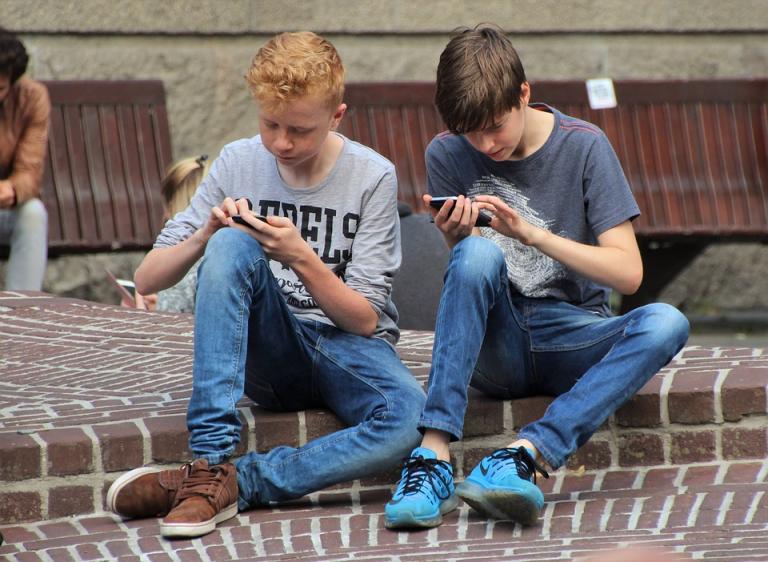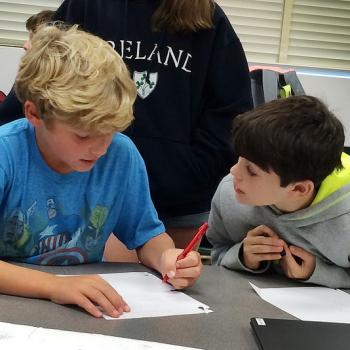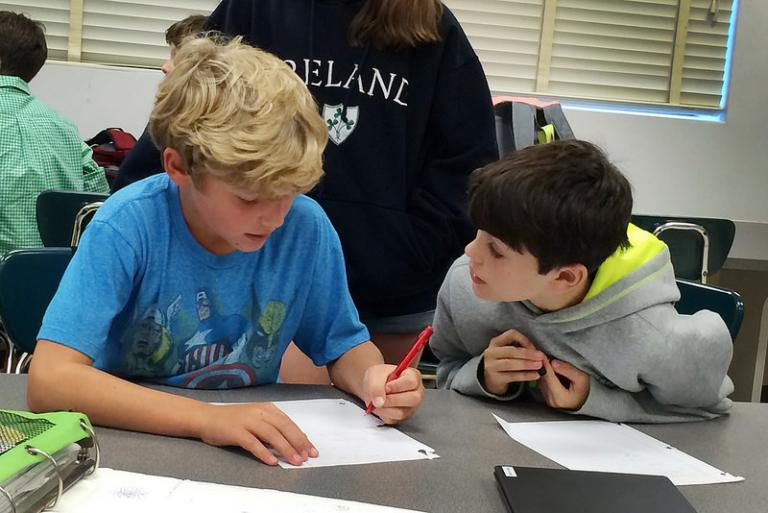
So after spending enough time working through iGen yesterday that I felt like I was writing a book report for homework, I’m trying to take a step back and look at her observations in a big-picture sort of way, because if her generalizations are true, we’re looking at a substantial cultural shift.
And, about these changes, I’m asking myself:
Which of these are just continuations of ongoing trends, vs. something truly new?
Which are blips based on short-term news-cycle developments?
Which are general societal changes impacting the culture as a whole, not just the young ‘uns?
Of these, which are having particular impacts on this generation because they’re coming of age (whether childhood/teens/young adulthood) during a period of transition?
And which are Twenge seeing what she wants to see?
I was hoping to check Gen Z @ Work from the library, even though I found it fairly weak and lacking in data, to see if its conclusions lined up, but, as it turned out, it had been removed from the shelves, apparently because it was lost or damaged. So I guess it’s just Twenge for now.
Here are some generalizations:
Teens and young adults are less eager to “grow up”; they don’t chafe at but welcome their parents’ close supervision, and want care and safety in college. Why? Twenge suggests that, besides the “natural” desire to be lazy if they can get away with it, they have had pleasant childhoods from which they don’t wish to escape.
Teens spend massive amounts of time on social media and on the internet and/or playing video games in general, and less time working, reading, doing schoolwork, or socializing with friends in-person. This is to the detriment of their mental health, as they’re less likely to report being happy than Millennials were. Are all of these changes due solely to the availability of social media? Is the desperate desire for “likes” a permanent feature of the teen and young adult years? At what age are they no longer susceptible to this? Besides this, around here at least, youth sports are tremendous time-sucks for the pre-high school crowd; how does this factor in? Certainly by the teen years these kids either move into high school or club sports or drop these activities entirely — what effect has the presence of a very scheduled pre-teen childhood had?
All that lack of reading is making them dumb, and we’ll have to compensate by making textbooks easier to read. But the reason for textbooks being difficult to read is not for textbook authors to show off their smarts, but to impart complex information.
Teens are abandoning religion. To a considerable extent, this seems to be the result of their baby boomer parents, while not showing up as religion-rejecters themselves, choosing not to share that religion with their children. Is this actively a decision that these teens and young adults are making, or is this a decision their parents made for them? Yes, anecdotally there are teens who declare that they discovered on their own that they don’t believe in God, but it seems far more likely that parents who have a very weak attachment to Christianity yet still possess that identity, don’t pass it on to their kids. Whichever case it is, though, it’s a huge unknown what impact this’ll have, particularly with the U.S. being so divided and community bonds being fractured in so many other ways. Plus, Twenge connects up decline in religious belief with the rise in individualism, but she doesn’t explain why there should be a religion-decreasing rise in individualism.
Teens and young adults want safety. Their parents told them they need to be safe and they ate it up: they buckle their seatbelts, demand safe spaces in college, want “safe” jobs rather than the risk-taking of entrepreneurship.
Teens have a more fatalistic, “you can’t control your fate” view of the world. The college protest movements might ostensibly be about changing things for the better, but underlying them is an attitude that things are really horrible and minority students and women can’t possibly get ahead in the present circumstances.
Looking at this constellation of traits, it seems as if a fundamental element of American culture is disappearing. It is characteristic of Europeans to be very secular, to demand protection (e.g., the narrow list of reasons for which one can be fired, the generous government benefits), to believe that the “social partners” (e.g., government and labor unions), but not oneself individually, can make life better — not to mention the calls for free college.
In line with their delayed adulthood, young adults are marrying later and later, and, despite the increase in unwed parenting, they are on average having fewer children and at older ages. “Hookup culture” and the rise of porn are changing attitudes toward sex, from the now-outdated “how many dates should you go on before you have sex?” to the new “how many times do you have sex before you go out on a date?” If you recall, Lisa Wade in American Hookup reported that at the beginning of the “hookup era” graduates would settle into more-normal dating patterns after graduation, but that more recently, in her observation, even after leaving college, young people don’t know how to “date.” What happens next? Twenge’s observations about the lack of social skills among teens and young adults accustomed to interacting virtually, would suggest that as this generation approaches the age where their somewhat older brothers and sisters would be marrying, at the now-normal age of 30, we’ll be learning that there’s more going on with this generation than just delayed adulthood.
Her observation that teens and young adults are far more willing to sign off on LGBTism (or at least LGB-ism) than prior generations, and to experiment themselves, may not mean anything much, or it may be quite important indeed, not as something to be celebrated but as an indiator of their loss of partnered relationships.
Twenge notes that young people are less likely to have party affiliation, more likely to support libertarian causes and more likely to follow the news. But at the same time there’s all this campus activism — how does that square? Is the lack of party affiliation a result of lack of community identification in general (other than with one’s “identity group” based on personal characteristics)? Is it simply due to the general screw-up-ness of the Democrats and the GOP at the moment, which has affected young people to a greater degree because they don’t have a past history of identification?
And what does this all add up to? To at least some degree, it appears to be a matter of ability, or lack thereof, to think at an abstract level. After all, the libertarian streak that Twenge identifies all relates to items the wrongness of which is not immediately clear and visceral. Accepting “unsafe” situations, as they’ve defined it, also has a certain component of abstract thinking, to be able to understand that a campus speaker they dislike, for instance, or an alternate point of view in a classroom can be something to learn from. The ability to think into the future, to form relationships depends on this. Religion, of course, is abstract — and here it seems like there’s a chicken-and-egg issue: are young people rejecting religion because it’s too abstract for them, or have they not been raised to understand religion, and therefore don’t have the tools for processing other intangible ideas? Is this level of abstract thinking really something that no 20-year-old processes, but in the past they weren’t expected to because the norms of society pulled them along?
And — in addition to all of the other ways that the internet and social media and the “easyness” of electronic gaming is impacting the lives of children and young adults — perhaps here, too, the existence of this infinite information resource that promises “all answers are concrete and just a click away” impacts one’s mindset, especially if that’s a part of one’s growing up.
Finally, you’ll note that although I have three boys who are smack-dab in this age group, I haven’t mentioned them once to confirm or object to Twenge’s observations. Quite honestly, my boys fit some of these stereotypes, but not others, because of their personalities, and because of issues of their own. No, they’re not Special Snowflakes, but I won’t discuss further details in recognition of their privacy.
Image: From Pixabay; https://pixabay.com/en/pokemon-pokemon-go-phone-game-1553995/; public domain












